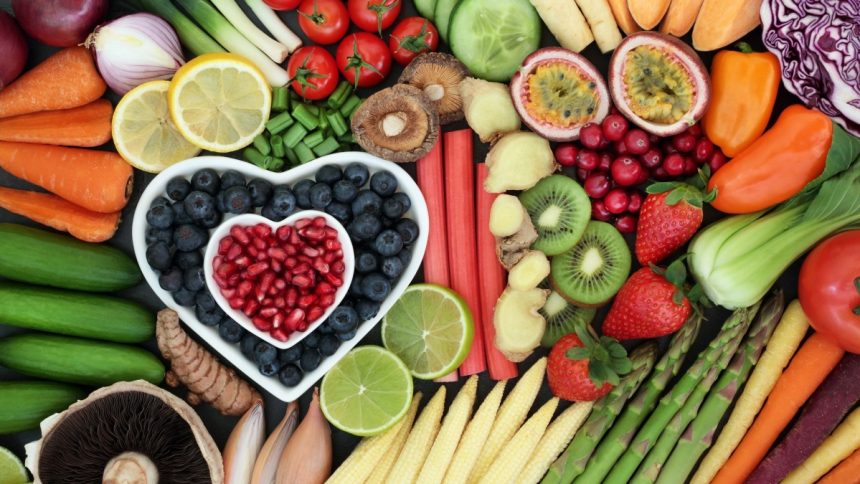Adopting a heart-healthy diet is essential for reducing the risk of heart disease and supporting long-term cardiovascular health. Additionally, it supports other aspects of health, including maintaining a healthy weight, improving digestion, and boosting energy levels.
Heart disease is a leading cause of death worldwide for both men and women. Your diet plays a crucial role in heart health. Eating heart-healthy foods like fruits and vegetables, while reducing intake of saturated fats and added sugars, can significantly benefit your heart. To get personalised advice on crafting a health-healthy diet plant, you can consult the best cardiologists in Hyderabad at Apollo Hospital Hyderabad. Continue reading to discover the best diet choices for maintaining good cardiac health.
Tips to Maintain a Heart-healthy Diet
Here are some expert tips to make sure you get a diet that’s good for your heart:
1. Restrict Portion Sizes
Portion control is just as crucial as the types of food you eat. Overeating or taking seconds can lead to consuming more calories than needed. To manage portions, try using a smaller plate or bowl. Focus on consuming more low-calorie, nutrient-rich foods like vegetables and fruits, and limit high-calorie, high-sodium options, such as processed and fast foods.
2. Load Up on Fruits and Veggies
Vegetables and fruits are excellent sources of minerals, vitamins, and fibre while being low in calories. Their antioxidants play a key role in protecting arteries and supporting heart health. Eating more fruits and vegetables may also help reduce the intake of higher-calorie foods. Fresh fruits, including apples, oranges, berries, and tropical options like papayas and mangoes are healthy for the heart. Berries like blueberries and strawberries offer powerful antioxidants to help lower blood pressure and reduce the risk of heart disease. When choosing for food opt for those without added sugars.
3. Opt for Whole Grains
Whole grains are packed with fibre and vital nutrients that promote heart health and assist in managing blood pressure. You can boost your intake by replacing refined grains with whole grains. Incorporate barley, quinoa, and farro into your diet for a nutritional boost. Aim to eat whole grains as the primary component of your grain intake.
4. Choose Healthy Protein
Lean meats, fish, poultry, fat-free or low-fat dairy products, and eggs are excellent protein sources. Opt for healthier, lower-fat choices, such as skim milk instead of whole milk and skinless chicken breasts instead of fried chicken. Fish is generally a better option than fatty meats, and certain varieties, like mackerel, salmon, and herring, are rich in omega-3 fatty acids, which help reduce triglycerides. Omega-3s can also be found in plant-based protein options like walnuts, soybeans, flaxseeds, and canola oil. Switching to plant proteins from animal proteins reduces your intake of fat and cholesterol while increasing fibre consumption.
5. Replace Unhealthy Fats with Healthy Ones
Reduce your intake of trans and saturated fats to help lower cholesterol levels and decrease the risk of coronary artery disease. High cholesterol can lead to plaque buildup in the arteries, known as atherosclerosis, which increases the likelihood of strokes and heart attacks. Instead, aim to replace saturated fats with foods rich in unsaturated fats. Sources of unsaturated fats include nuts, seeds, seafood and avocados. Olive oil, especially extra virgin, is high in monounsaturated fats and antioxidants, which protect your body and arteries.
6. Restrict Salt and Sodium Intake
Sodium is a mineral that occurs naturally in certain foods like milk and celery, but it is often added to processed items such as soups and bread. Consuming too much sodium, whether from table salt or other sources, can contribute to high blood pressure, a major risk factor for heart disease. Reducing your sodium intake is essential for a heart-healthy diet. Start by using less salt when preparing meals and seasoning your food. However, a large portion of sodium comes from canned and processed foods, so try avoiding it. Using salt substitutes can also enhance flavour while keeping sodium levels lower.
Maintaining a heart-healthy diet plays a vital role in preventing heart disease and promoting overall cardiovascular wellness. By making thoughtful food choices, such as opting for whole grains, lean proteins, and unsaturated fats while reducing sodium and unhealthy fats, you can safeguard your heart’s health. For personalised advice on creating a diet tailored to your specific needs, consider consulting the best cardiologists in Hyderabad. The experts at Apollo Hospital Hyderabad are renowned for providing comprehensive cardiac care to help you achieve optimal heart health.
Lynn Martelli is an editor at Readability. She received her MFA in Creative Writing from Antioch University and has worked as an editor for over 10 years. Lynn has edited a wide variety of books, including fiction, non-fiction, memoirs, and more. In her free time, Lynn enjoys reading, writing, and spending time with her family and friends.















